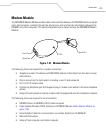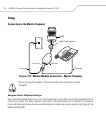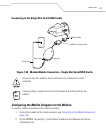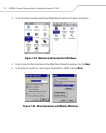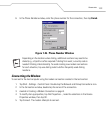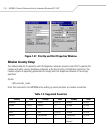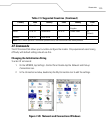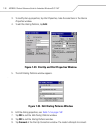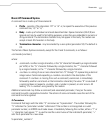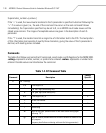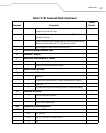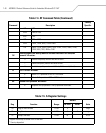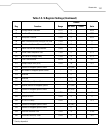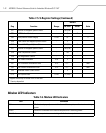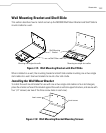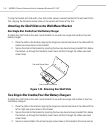
Accessories
7-37
Basic AT Command Syntax
A command line is made up of three elements:
• Prefix - consists of the characters “AT” or “at” or, to repeat the execution of the previous
command line, “A/” or “a/”.
• Body - made up of individual commands described later. Space characters (IA5 2/0) are
ignored and may be used for formatting purposes, unless they are embedded in numeric or
string constants. The termination character may not appear in the body. The modem can
accept at least 40 characters in the body.
• Termination character - may be selected by a user option (parameter S3). The default is
CR.
The format of Basic Syntax commands, except for the D and S commands, is as follows:
<command>[<number>]
where:
• <command> is either a single character, or the “&” character followed by a single character
per V.250; or the “%” character followed by a single character, the “*” character followed
by a single character, or the “^” character followed by a single character.
• <number> is a string of one or more characters from “0” through “9” representing a decimal
integer value. Commands expecting a <number> are noted in the description of the
command. If <number> is missing from such a command (<command> is immediately
followed by another <command> or the termination character), the value “0” is assumed. If
a command does not expect a <number> and a number is present, an error occurs. All
leading “0”s in <number> are ignored by the modem.
Additional commands may follow a command (and associated parameter, if any) on the same
command line with a separation character. The actions of some commands cause the rest of the
command line to be ignored.
S-Parameters
Commands that begin with the letter “S” are known as “S-parameters”. The number following the
“S” indicates the “parameter number” referenced. If the number is not recognized as a valid
parameter number, an ERROR result code issues. Immediately following this number, either a “?” or
“=” character must appear. “?” is used to read the current value of the indicated S-parameter; “=”
sets the S-parameter to a new value.
S<parameter_number>?



